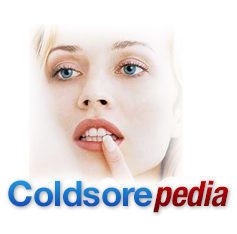Benzalkonium chloride is a cationic surfactant chemically related to ammonia. It is soluble in ethanol and acetone, and less readily in water. Although solution in water is more difficult and slower, aqueous solutions of benzalkonium chloride are easier to handle and are preferred.
Standard concentrations of benzalkonium chloride normally available on the market include pure aqueous solutions up to fifty percent
benzalkonium chloride. Stronger solutions require inclusion of other solvents (alcohols) to prevent increased viscosity or the formation of gels at lower temperatures.
Properties
Pure benzalkonium chloride is a white or yellow powder. In solution, it is colorless, taking the form of a liquid or of gelatinous lumps.
Solutions of benzalkonium chloride are neutral to slightly alkaline in pH value. When shaken, they foam profusely. The solution has a bitter taste and, in highly concentrated solutions, a faint almond-
chloride.
Uses
The most common use for benzalkonium chloride solution is as a disinfectant. Because the antibacterial effect is both strong and long-
A strong solution of benzalkonium chloride is used to sterilize surgical instruments. Benzalkonium chloride is used in sprayable disinfectants for both aerial and surface use. It is often used as a disinfectant to prepare skin for use of syringes when an alcohol-
Benzalkonium Chloride As A Cold Sore Treatment
Benzalkonium chloride, although not approved by the FDA for treatment of cold sores, is found in certain over the counter products for that purpose. These products include Releev and Viroxyn. The strength of the benzalkonium chloride solution in these products is very low (Viroxyn contains 0.13% benzalkonium chloride). Releev also includes echinacea, an herbal remedy. (The same products contain isopropyl alcohol as an inactive ingredient in greater strength; isopropyl alcohol is also a disinfectant, like benzalkonium chloride.) The price of these products is about the same or just slightly lower than the antiviral treatments that are approved and frequently prescribed for cold sores
(at least one of which is available over the counter). However, a similar benzalkonium chloride solution can be homemade for considerably less money.
The theory behind using a benzalkonium chloride solution to treat cold sores lies in the limited antiviral properties of the chemical. Although benzalkonium chloride has not been shown to either kill the herpes virus or prevent its reproduction, it does have some antiviral properties. The directions in the cold sore products call for applying the product topically when symptoms first appear. This generally means when a tingling and itching sensation develops in the region around the mouth, before blisters appear. The product is variously claimed to halt a herpes outbreak in a single day or, less optimistically, to reduce the duration of the outbreak in a manner similar to the way antivirals work. Releev is marketed as “Releev 1-
The FDA has not approved benzalkonium chloride as a treatment for cold sores and Viramedx is in some trouble with the agency for making
claims that its product is effective against a herpes outbreak. Personal testimony about the products may be found on discussion forums for herpes sufferers; this testimony is conflicting. Some posters claim that the products work well, indeed better than the standard antivirals, while others report that it didn’t work for them at all. At this point, it’s difficult to say with any certainty whether benzalkonium chloride is effective against cold sores. There is no good scientific evidence establishing its effectiveness. The anecdotal, personal testimony evidence is mixed. It might be worth a try for a cold sore sufferer who has not found other treatments such as antivirals to be as successful as hoped.
